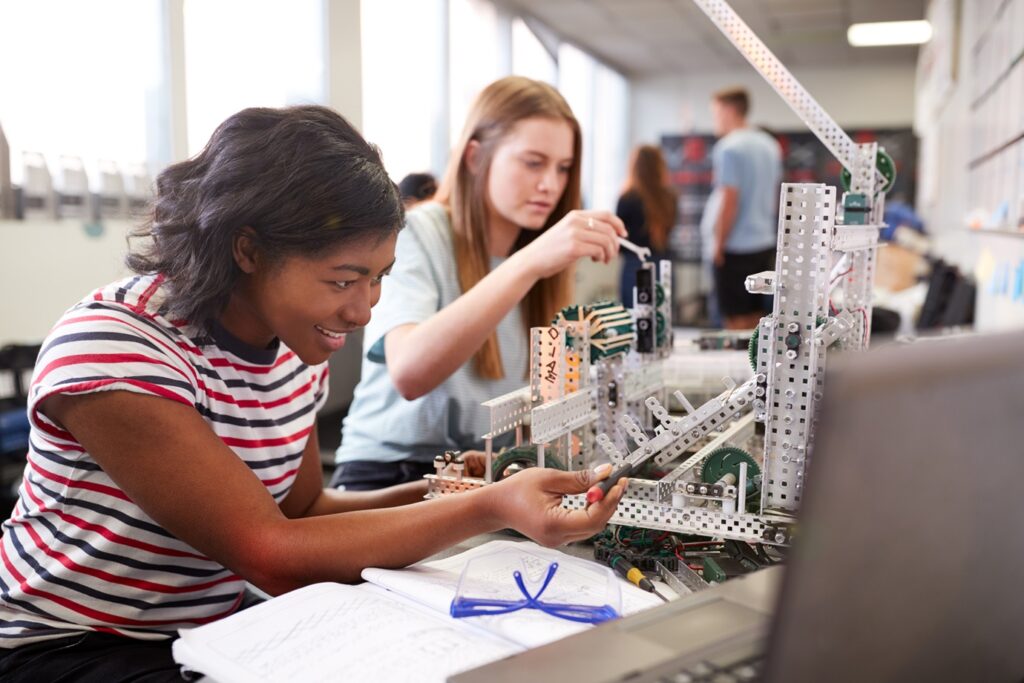Women are chronically under-represented in scientific studies and professions, according to a new report produced by UNESCO in collaboration with G20.
Findings show the proportion of women working in STEM occupations has increased only slightly over 15 years in G20 countries (22 per cent in 2021, compared with 19 per cent in 2005), as well as in many other regions in the world.
The report, Changing the Equation, also indicates that when women do work in these fields, they face pay gaps that can be considerable, as well as limited opportunities for career advancement.
In response to the alarming findings, UNESCO is calling on countries to take strong measures to reinforce gender equality in these fields as quickly as possible.
“In the G20 countries, the proportion of women working in science, technology, engineering and mathematics is plateauing at 22 per cent,” said Audrey Azoulay, Director-General of UNESCO.
“This situation undermines our collective ability to innovate and respond to the pressing challenges of our time, such as climate change and digital transformation. At Brazil’s instigation, UNESCO has produced a report highlighting this situation and recommending a series of actions to finally move towards gender equality.”
Report findings
Among the ten G20 countries where data is available, the average salary of women working in STEM fields is at most 88 per cent of that earned by men – in four countries it’s even less than 75 per cent.
Scientific grants are a key financial resource for many researchers, yet in 2022 women accounted for just 37 per cent of recipients in a sample of thirteen countries, including ten G20 members.
Only one in three researchers is a woman, and less than 25 per cent of inventors listed in international patents are women.
Even before entering the professional workforce, gender inequalities are apparent in schools due to persistent gender bias and discrimination.
Women account for just 35 per cent of STEM university graduates in G20 countries, even though they perform as well or better than men in terms of academic results. This proportion drops to 29 per cent in information and communication technologies, and just 26 per cent in engineering, manufacturing and construction.
Additionally, over 40 per cent of women studying STEM subjects say they have been victims of sexist behaviour.
UNESCO is calling on G20 countries to adopt policies in favour of gender equality– developing the aspirations of girls and women to pursue studies in STEM fields as well as ensuring fair and equitable working conditions for young female graduates.
This includes combating gender bias in teaching materials, providing gender-sensitive career advice, and creating supportive policies for women to balance work and family life, while being recognised and compensated fairly.
Australia’s STEM Workforce
Founder and Director of Franklin Women, a social enterprise supporting women in health and medical research, Melina Georgousakis tells Women’s Agenda it’s great to see the UNESCO report highlight the under-representation of women in science at a global level because solving the gender gap will have global impact.
“It is not only about encouraging more women to embark on careers in science but also ensuring we retain the talent we have in the sector,” she says.
“STEM-related jobs are expected to grow at double the rate of non-STEM related professions in future years and we need to be able to respond to this need in Australia for our economic growth and prosperity. We cannot do this if we are not tapping into the perspectives, experiences, and skills that women have to offer the sector.”

Australia’s STEM workforce has grown by 68 per cent in the last decade, according to the Diversity in STEM Review report published in February. Despite this growth, no amount of funding has managed to reach the desired targets to support STEM-qualified women in Australia.
And just this year, the Australian government ended the Women in STEM Ambassador initiative after almost six years in operation, in a move described as “another blow” for advocates.
When women are not at the table there is a gender gap with respects to the outcomes of scientific research,” said Georgousakis, adding that what this latest report from UNESCO and G20 is highlighting “is the opportunity to do better and it is time that we rise to the occasion for everyone’s gain”.


